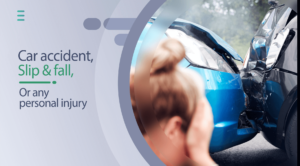The victim of an accident should anticipate the arrival of all sorts of correspondence. Things like bills, receipts, notices about test results, and statements from an employer could start appearing in the victim’s mailbox. Other bits of information could be sent in a series of emails.
Why it pays to organize all the correspondence
Any one piece might be used to substantiate a claim. Some pieces might function as supplementary evidence.It is good to have the received materials on hand, in case you plan to initiate a lawsuit.
If the veracity of your claim were to be questioned, it would help to have documents that could serve as verification of the correct information. When documents have been organized, then it becomes easier to access significant materials, after retaining a personal injury lawyer in Bradford or to share requested documents with an attorney.
When saved documents carry a date, then it becomes easier to determine how quickly the receiving party chose to take any action, after having received a request from you. (See more below about taking notes during a phone call.)
Try to keep all the accident-related documents together
Find or purchase a box or folder, one that can be used for storing the saved documents. Put the selected box or folder in a save place. If you have a filing cabinet, use that for storing a folder.
If possible, make hard copies of all the papers that were sent by electronic means. After making any medical payment, seek a copy of the receipt. If no copy provided, then save the original receipt.
Create a calendar of scheduled appointments; that should limit the chances for missing an appointment. A missed appointment would provide the other side with evidence that it could use against you.
What to include in any notes that might be made during a phone call?
• The date when the call was received
• The time of day when the call was made
• The response: Did someone leave a message on your phone; did you leave a message at the number that you called?
• The name of the person that took your call and spoke with you
• Details on any requests that you made during that particular phone call
Details on any requests that were made by the person at the other end of the line: This could prove useful, if you hear that you were supposed to carry out a certain action in a specific manner.
Treat any corrections to the notes made during a phone conversation like a correction that has been made on a check. Put your initials next to the correction. That way, there would be less reason to question the veracity of any notation.




